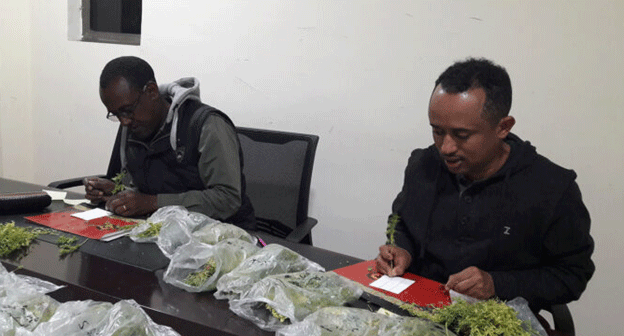Ethiopia, a country with immense potential for legume production, is taking decisive steps to restore and boost its lentil sector — and it starts with science. A newly launched virology lab in the country is already transforming how farmers and researchers identify and combat crop diseases, especially viral infections that have long gone undiagnosed or misdiagnosed due to the absence of local diagnostic capacity.
Backed by a AU$2.14 million initiative from the Australian Centre for International Agricultural Research (ACIAR) and led by the University of Western Australia, this modern facility is empowering Ethiopian scientists and agronomists with training, tools, and field-based diagnostic methods such as Tissue Blot Immunoassay (TBIA). This allows rapid, affordable identification of plant viruses on-site — eliminating the need for expensive, slow overseas lab testing.
This innovation couldn’t have come at a more critical time. Ethiopia’s lentil-growing areas have shrunk dramatically — from over 119,000 hectares to under 70,000 hectares in the 2021–22 season. Causes include viral outbreaks, insect vectors, poor seed health, and limited farmer access to agronomic knowledge. As a result, domestic yields have dropped, threatening rural incomes and pushing Ethiopia toward lentil imports to stabilize its markets.
Dr. Safaa Kumari, Head of the ICARDA Seed Health Lab, notes that this facility is more than a diagnostic center — it’s a pivotal tool for reducing pesticide misuse. “By identifying viruses properly, farmers avoid spraying ineffective chemicals, saving both money and the environment,” she explains. The lab enables quick response to outbreaks and helps in tracking disease patterns for long-term crop protection strategies.
But the benefits go deeper. As part of a regional effort spearheaded by ICARDA, Ethiopian farmers are now being trained to recognize virus symptoms in the field, adopt virus-free seed systems, and use integrated pest management (IPM) strategies. The research generated has already contributed to breeding virus-resistant lentil varieties and producing clean seeds — key components for rebuilding a resilient and profitable lentil sector.
Plant viruses don’t respect borders, either. Prof. Martin Barbetti, Project Manager and expert in plant pathology, underscores the international value: “Viruses affecting Ethiopian lentils can impact chickpeas and faba beans across South Asia, North Africa, and Australia. This lab forms part of a global surveillance network with immense value for knowledge sharing and containment.”
The Ethiopian government, together with international partners, sees this as a step toward long-term food security, import reduction, and rural economic development. Dr. Richard Brettell of ACIAR confirms, “This investment supports sustainable agricultural innovation. The knowledge and partnerships formed here benefit both Ethiopia and the wider global agricultural community.”
Ethiopia’s new virology lab marks a significant leap toward science-driven agriculture, especially for lentils and other critical legume crops. By equipping local researchers and farmers with timely, precise diagnostics and sustainable solutions, the country is addressing the root causes of declining yields. This model of international collaboration and local empowerment offers valuable lessons for agricultural systems across the globe.
Error





